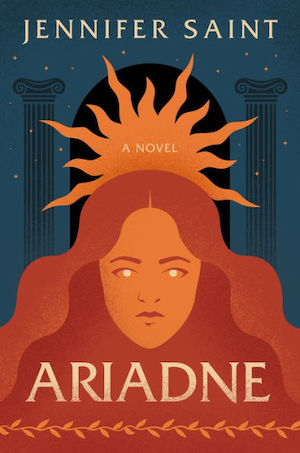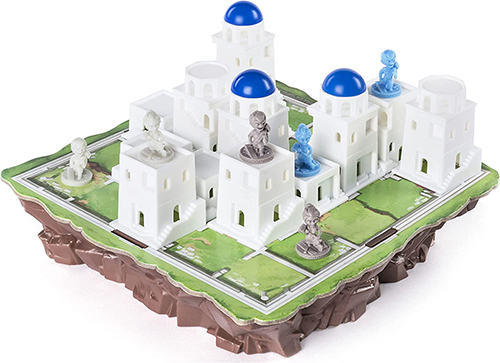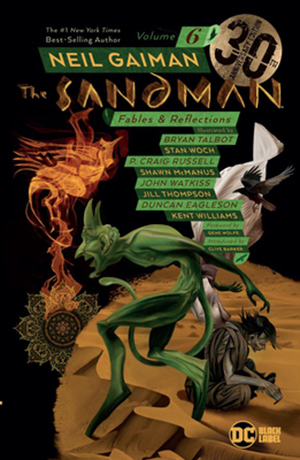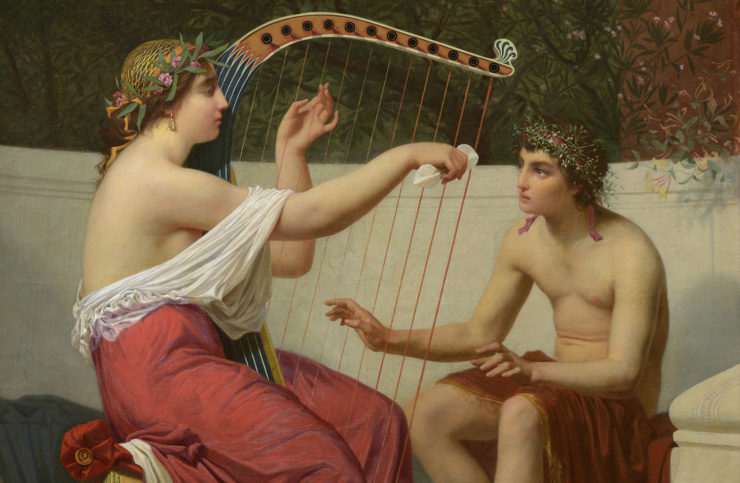When I visited Athens, I was “that guy,” eagerly answering the tour guide’s questions, drawing upon my cursory knowledge of the Greek pantheon. The tour guide was impressed. The other tour-goers were not. Whoops.
I couldn’t help myself. Greek mythology is fascinating. It formed the foundation for eons of stories to come. It provides a dizzyingly deep well of narrative and dramatic potential, all conveniently in the public domain. So it’s no surprise creators of all sorts continue to turn to Greek myths and legends for inspiration.
You can probably think of hundreds of stories that tap into Greek mythology to a greater or lesser degree. The science fiction and fantasy genres in particular lean into the influence of these ancient tales. Today, I’ll discuss just a small selection of modern stories inspired or informed by the gods, Titans, creatures, and human heroes made popular by Greek myth.
Hadestown, the Broadway Musical
I lauded Hadestown in a previous article, praising its reimagining of the Orpheus-Euridice myth and making a case for retellings of myths and classic stories, which I’d previously balked at. Tyler Dean took a more focused approach, discussing the ways in which Hadestown expands and reshapes the myth into something new. I recommend both articles if you’re interested in Hadestown or the tale it’s based on.
Hadestown—winner of multiple Tonys, including best musical—tells a version of Orpheus and Eurydice’s story that exists in a nebulous time. There are through lines exploring industrialism and capitalism, but much of the musical’s visual palette is rendered as a timeless landscape. The result, for me, was feeling as though this story appeals to its audience on a fundamental human level, and anyone approaching the narrative could find much to connect with. By the end of the show, I found myself thinking about the impact of stories and the value of telling them time and again, even when you’ve already heard them and think you know their endings, and what they mean. Hadestown, as I argued in the article linked above, makes a case for the ongoing impact of mythology, Greek or otherwise.
Larger implications aside, Hadestown is a visual and musical masterpiece that puts a unique spin on Orpheus and Eurydice. If you can nab tickets, head straight to the show and don’t look back.
Hades, by Supergiant Games
Welcome to my latest video game obsession: Supergiant’s Hades is a roguelike game, meaning death is permanent and forces you to start from the beginning. Each run is different. Rooms change, rewards are altered, and you never know which boss or group of enemies might pop up.
Hades follows Zagreus, son of Hades, who attempts (over and over again) to escape the realm named for his father. Along the way, the Gods of Olympus intervene, bestowing boons on Zagreus. The boons increase his health, boost his abilities, or give him new powers.
The gameplay of Hades is *chef’s kiss.* Come for the tight controls and gameplay loop, stay for the lore. Between runs, Zagreus walks the halls of Hades and interacts with its denizens, including Nyx, Hypnos, Cerberus, Achilles, and others. Every character in Hades is expertly voice-acted, and the dialogue trees are seemingly unlimited. (Seriously, I did more than 100 runs and still never tired of hearing what these characters had to say.)
It’s clear the Supergiant team did their research. It’s also clear they weren’t afraid to put their own stamp on Hades, bringing the myths of yore to a distinctly modern medium. The game is a must-play thanks to its unique take on Greek myth and its amazing gameplay. It cleaned up at many a gaming awards show, and for good reason. Make like Dionysus and revel ecstatically in the glory of Hades.
Ariadne by Jennifer Saint

I spoke briefly about my former reticence to read retellings in the Hadestown section above. When I first read Ariadne, I enjoyed the book but didn’t really click with it when it was released, then rethought my stance after seeing Hadestown. Now, I appreciate Jennifer Saint’s Ariadne in a new way. In the same vein as Madeline Miller’s Circe or The Song of Achilles (or so I’ve been told; I have yet to read them, though they’re on the list!), Ariadne tells a classic legend from a new and different perspective.
The eponymous protagonist, daughter of Minos, meets Theseus when he takes part in an annual sacrifice to the Minotaur. Theseus plans to upend the ritual and kill the minotaur. Ariadne leaves Crete with Theseus for a life of love and romance…or so she expects, until things take a turn.
Ariadne’s story isn’t the happy “riding off into the sunset” narrative that she initially expects. Saint’s book tells a starker side of the tale, in which Ariadne falls victim to the actions of ambitious and deceitful men—men who would later be deemed heroes for their deeds.
The book continues the popular, established trend of reimagining stories from a new perspective, one that paints the “heroes” in a very different light. Against a backdrop of a tale Greek mythology fans already know, Ariadne stands out as a fresh and thoughtful iteration of a well-known tale.
Santorini by Roxley Games

This is the first time a board game has appeared on one of my lists! For obvious reason, it’s hard to compare Santorini with the more formalized stories above, but by the gods, I’ll try!
Santorini is best played with two players, and I describe it to rookies as “kinda like chess, in that it requires strategy and is easy to understand but hard to master.” It also has much more of a cutesy flair in its design, and the gameplay offers many more mechanics to shake things up.
In its purest form, Santorini pits two builders against each other. Players attempt to move their builder to the top of a three-level structure. Opponents can build blue domes (the island of Santorini is famous for ’em, of course) to block opponents. Once you learn the base game, Santorini then introduces gods and other characters from Greek mythology. They expand the game further with unique abilities that make your moves (and your opponent’s) harder to predict.
Santorini doesn’t have a narrative through line beyond the nebulous goal of winning. But it’s fun to deploy the god powers and see how doing so alters the core tenets of the gameplay. Each god’s ability feels like a good fit, lore-wise, so there’s always a new, interesting avenue to explore as you seek victory over your friend (or enemy, at least until the game ends).
The Sandman by Neil Gaiman

Cue Sinatra’s “It Had To Be You,” because there was no way in Hades I wasn’t going to include Sandman on this list. In a way, I’m doing Sandman a disservice by only talking about Greek myth, here, since the series draws on countless mythologies and cultures. While acknowledging the much wider scope of Gaiman’s work, I’ll simply note that Greek mythology is prevalent in the series, particularly with regard to the Fates and Orpheus.
In Sandman canon, Orpheus is the son of the Muse Calliope and Morpheus, also known as Dream of the Endless, Sandman, Oneiros, King of Dreams, and many other names. To tell you exactly how their story pans out in Sandman would be like unraveling a precious tapestry by pulling on a stray thread, and I won’t attempt it here beyond the very highest level of synopses: Eurydice dies of a snake bite on the day or her wedding to Orpheus. Orpheus asks his father for help in reviving her, and he refuses. Orpheus swears off his father, but it certainly won’t be the last time they see one another…
The tale continues in portions of future Sandman volumes, playing with the interconnected mythologies that comprise Neil Gaiman’s epic story and world centered on the Dream King. It weaves in threads from many other pantheons, redefining the ancient stories for a larger purpose only readers who finish the series will completely grasp.
***
As always, I’m looking for your take on the topic at hand! What stories or games (or musicals, comics, etc.) reference or reinvent Greek mythology in interesting ways, and why do you like them? Sing your odes in the comments!
Cole Rush writes words. A lot of them. For the most part, you can find those words at The Quill To Live or on Twitter @ColeRush1. He voraciously reads epic fantasy and science-fiction, seeking out stories of gargantuan proportions and devouring them with a bookwormish fervor. His favorite books are: The Divine Cities Series by Robert Jackson Bennett, The Long Way To A Small, Angry Planet by Becky Chambers, and The House in the Cerulean Sea by TJ Klune.










